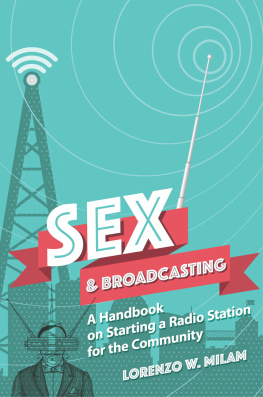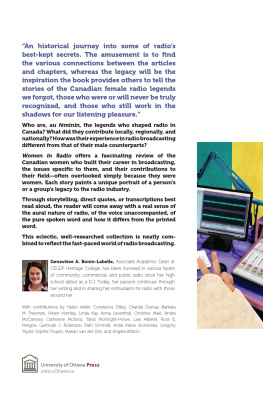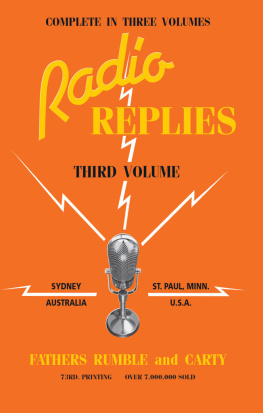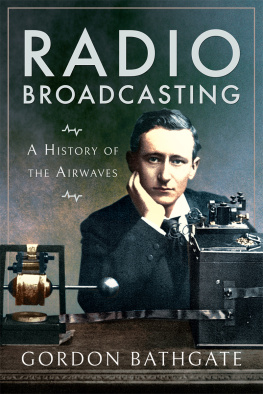First published in 1968 by George Allen and Unwin Ltd
This edition first published in 2017
by Routledge
2 Park Square, Milton Park, Abingdon, Oxon OX14 4RN
and by Routledge
711 Third Avenue, New York, NY 10017
Routledge is an imprint of the Taylor & Francis Group, an informa business
1968 George Allen and Unwin Ltd
All rights reserved. No part of this book may be reprinted or reproduced or utilised in any form or by any electronic, mechanical, or other means, now known or hereafter invented, including photocopying and recording, or in any information storage or retrieval system, without permission in writing from the publishers.
Trademark notice: Product or corporate names may be trademarks or registered trademarks, and are used only for identification and explanation without intent to infringe.
British Library Cataloguing in Publication Data
A catalogue record for this book is available from the British Library
ISBN: 978-1-138-20918-3 (Set)
ISBN: 978-1-315-44344-7 (Set) (ebk)
ISBN: 978-1-138-20920-6 (Volume 2) (hbk)
ISBN: 978-1-138-20923-7 (Volume 2) (pbk)
ISBN: 978-1-315-45761-1 (Volume 2) (ebk)
Publishers Note
The publisher has gone to great lengths to ensure the quality of this reprint but points out that some imperfections in the original copies may be apparent.
Disclaimer
The publisher has made every effort to trace copyright holders and would welcome correspondence from those they have been unable to trace.
RELIGION BY RADIO
Its Place in British Broadcasting
MELVILLE DINWIDDIE
C.B.E., D.S.O., M.C., D.D.
FOREWORD BY THE RIGHT HON. LORD REITH
P.C., G.C.V.O., G.B.E., C.B., D.C.L., LL.D.
London
GEORGE ALLEN AND UNWIN LTD
RUSKIN HOUSE MUSEUM STREET
Im writing an account of religion by radio in its first forty years, Dr Dinwiddie told me; I wish you to give me a foreword of six hundred words. Must you call it religion by radio? I asked; Six hundred words, he replied. So here they are.
Religion by radio probably relatively the most ineffectual or anyhow the most inefficient in engineering or commercial sense of effort to result of all the sectional activities of broadcasting. But better begin at the beginning Dr Dinwiddies beginning with broadcasting and the BBC in June 1933.
I was spending a weekend with Sir George and Lady Lilian Adam Smith in Aberdeen; and on the Saturday evening we had been talking about the search for a BBC regional director for Scotland; it had been going on for some time; the need had been giving me a good deal of concern. For any English post, there were plenty of candidates; for a Scottish post very few or none; much discussion on that Saturday evening about the qualifications and qualities required.
Sunday morning to Kings College Chapel; in the evening had I ever been in St Machars Cathedral, and would I like to go there? No and Yes respectively. Quite impressed by the minister; they told me afterwards that he had graduated MA in Edinburgh just in time to join up at the out-break of the 1914 war; he had returned a major with the DSO, Military OBE, MC and Mentions. His last job was a Deputy Assistant Adjutant-General, GHQ in France. He had been persuaded to stay on in the Army for four years staff captain in the War Office; but he had become increasingly uneasy. Had war not come when it did, he would have proceeded immediately after his MA degree to a BD; then to ordination and the ministry of the Church of Scotland. Despite much blandishment and many attractive offers, he had retired from the Army and gone back to Edinburgh University. He had been minister of St Machars Cathedral for nearly eight years 3,500 members, fifty elders. Quite a fellow, I thought; and returned that night to London.
Some time later a letter came from Lady Lilian; did I think the minister I had heard, and heard about, might do for the Scottish directorship? I said I could not answer till I had had not just a good talk with him but a very good talk; did she think he would care to consider, and to be considered for, the post? Lady Lilian definitely thought Yes. Shall I ring him and ask him on the above assumption to come to London? Yes. she said; and forthwith I did.
Two days later we were surveying each other Mr Dinwiddie and I across a large table in Broadcasting House, London. Explanation by me, in less than a minute but comprehensively as to essentials; question and answer north to south, question and answer south to north; an hour of it but quick moving all the time and, incidentally, how one longs that people should be compelled to display a number indicating their intelligence quotient, so that one might be warned in advance and know when to speak slowly, proceed carefully from one statement to the next, words of one syllable, and all the rest of it.
In due course Mr Dinwiddie said that the next question was to be his last; a rather personal one, he advised; he hoped I would not object to it. Will you yourself be in the BBC for many years yet; can you assure me of that? This is a vital issue to me. My reply was that, for lots of reasons, I could not positively assure him of any number of years; but, negatively, I could say that I had then no thought of leaving the BBC; I expected to be where I was for some years yet; I asked if that was enough. Yes.
In five years I was out; he in twenty-five; and to his military orders a civil CBE had been added; to his academic ones a DD of Aberdeen. The Scottish Regional Director had definitely directed and controlled; his interest and supervision had been catholic in the all-embracing significance and ubiquitous. He seemed to be as much concerned with jazz music as in that of the hymn book; in a coon show from Saltcoats as in a service from St Giles Cathedral. And so, I suppose, he should.
The comment above about ineffectualness and inefficiency of broadcast religious activities is not to any extent chargeable to the transmitting end conception, planning, mounting, execution; nor to the receiving end as such. It did, and does, apply to follow-up or rather lack of follow-up of the transmission at the reception end.
The churches all denominations and confessions presumably exist to bring men to a knowledge of, and faith in, Christ; Come and see their supreme commission. In business terms they have something to sell; and, as elsewhere, sales can be vastly increased by, and may to a great extent depend on, advertising. Here millions of pounds worth of advertising had been done for them free. But neither the governing bodies nor the individual salesmen of the ethics have even yet realised how accidental and odd it was that, from the very beginning, and against indifference, ridicule, opposition, the Christian religion and the Sabbath were given positions of privilege and protection in the broadcasting service, which circumstances having been otherwise and as might have been expected no protest or petition by the churches (on eventual recognition of what was happening) could have secured for them. Nor, consequentially, did they realise and such realisation would probably now be too late what was required by way of follow-up and encouragement to those whose interest had been revived. If they had, there might have been a national revival on a scale hitherto unimagined.











